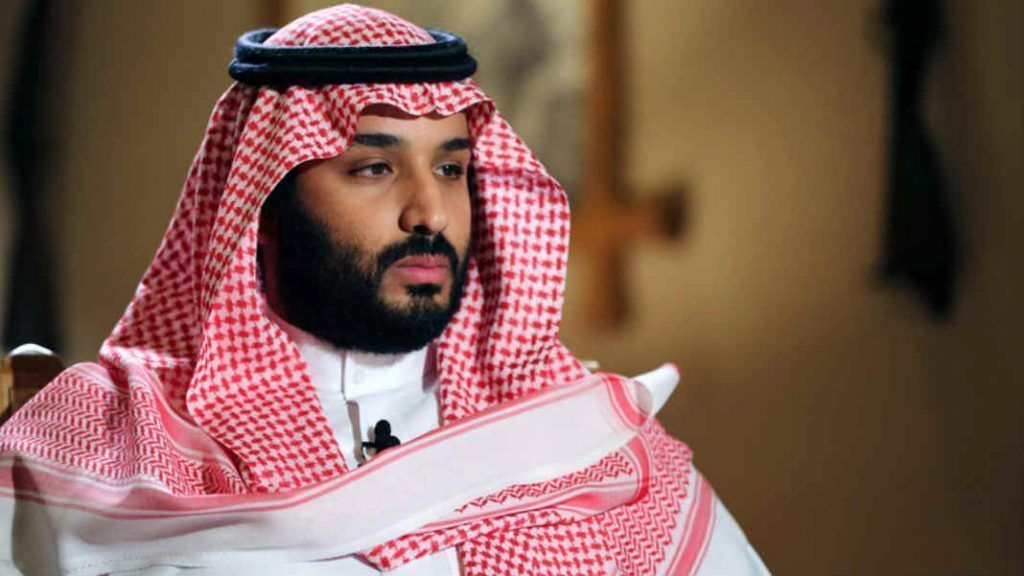May 02, 2017
By Sami Aboudi and Omar Fahmy
– Iran seeks to control Muslims, says top prince
– Says any contest should happen in Iran, not Saudi
– Saudi land push in Yemen could cause heavy casualties
– Time on Riyadh’s side in Yemen war (Updates with fresh quotes from interview)
DUBAI/CAIRO (Reuters) – Saudi Arabia’s powerful deputy crown prince ruled out on Tuesday any dialogue with arch rival Iran and pledged to protect his conservative kingdom from what he called Tehran’s efforts to dominate the Muslim world.

In unusually blunt remarks, Prince Mohammed bin Salman said any struggle for influence between the Sunni Muslim kingdom and the revolutionary Shi’ite theocracy ought to take place “inside Iran, not in Saudi Arabia”. He did not elaborate.
Prince Mohammed, also defence minister and a son of King Salman, also said in a nationally televised interview that Riyadh had the resources to crush Iran-aligned Houthi fighters in Yemen, where Saudi forces head an opposing coalition of Arab states, but that the cost would be heavy on both sides.
Saudi Arabia and Iran compete for influence in the Middle East, also supporting rival groups in Syria’s civil war.
In Yemen, Iran denies Saudi accusations that it provides financial and military support to the Houthis who are fighting government forces allied with Saudi Arabia.
Asked if Saudi Arabia was ready to open a direct dialogue with Tehran, Mohammed said it was impossible to talk with a power that was planning for the return of the Imam Mahdi – who Shi’ites believe was a descendent of the Prophet who went into hiding 1,000 years ago and will return to establish global Islamic rule before the end of the world.
IDEOLOGY
“How do you have a dialogue with a regime built on an extremist ideology … that they must control the land of Muslims and spread their Twelver Jaafari sect in the Muslim world,” Mohammed said in the interview with MBC television, which was also broadcast on Saudi state television.
He was referring to the leader of Iran’s 1979 Islamic revolution, Ayatollah Ruhollah Khomeini, who overthrew the monarchy.
He said that Iran’s ideology was based on belief that “the Imam Mahdi will come and they must prepare the fertile environment for (his) arrival … and they must control the Muslim world.”
“We know that the aim of the Iranian regime is to reach the focal point of Muslims (Mecca) and we will not wait until the fight is inside Saudi Arabia and we will work so that the battle is on their side, inside Iran, not in Saudi Arabia.”
Under Iran’s constitution since the 1979 revolution, the country’s supreme leader is the earthly representative of the Imam until his return.
CASUALTIES
Asked to respond to reports that after two years of war and Saudi’s military intervention the Houthis, aligned to ex-Yemeni president Ali Abdullah Saleh, still control large swathes of Yemen and large quantities of weapons, Prince Mohammed said:
“We can uproot the Houthis and Saleh in a matter of days. We can mobilise Saudi land forces alone in days but the casualties in our forces will be in the thousands and the other result will be Yemeni civilian casualties in high numbers.”
He said that time was on the Saudi side and the better choice was to exhaust the other side and choke off their supplies.
The two-year-old war has killed more than 10,000 people, according to United Nations figures, half of them civilians, and displaced more than three million.
(Additional reporting by Omar Fahmy in Cairo, writing by Sami Aboudi anhd William Maclean, Editing by Robin Pomeroy and John Stonestreet)

